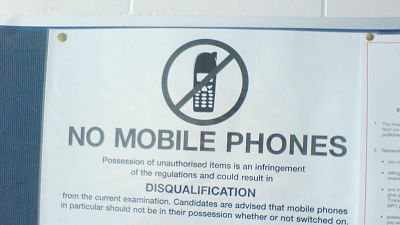Study reveals that banning smartphones at school improves sleep and mood

Australia has become the first country in the world to pass
School smartphone ban results in better sleep and improved mo - News and events, University of York
https://www.york.ac.uk/news-and-events/news/2024/research/school-smartphone-ban-better-sleep/

Lisa Henderson, a psychology professor at the University of York, and her colleagues conducted an experiment in which they banned smartphones for 21 days for a group of eighth-graders at Stanway School in Colchester, a city in Essex, southeast England. After the students took a series of tests, they were randomly assigned to either a group that was banned from smartphones or a group that was allowed to use smartphones as usual, and the tests were repeated three weeks later to examine the effects of the smartphone ban.
Students in the smartphone-banned group went to bed 50 minutes earlier, at 10:12 p.m., compared with 11:02 p.m. in the week before the ban. Students in the smartphone-banned group also reported a 17% decrease in feelings related to depression and an 18% decrease in feelings related to anxiety, and generally felt less agitated and tense. Students who reported improved sleep quality also showed changes in their heart rates, suggesting improved health, the researchers noted.

On the other hand, the study found that the smartphone ban did not result in a significant improvement in cognitive ability. The smartphone ban group's scores improved by 3% in tests conducted before and after the experiment, but it was concluded that there was no improvement in sustained attention. The researchers speculate that this result 'may mean that it may take longer than the 21-day study period for changes in cognitive ability to appear.'
'This experiment incorporated a much longer period of smartphone banning than previous studies, allowing us to see how a smartphone ban at school affects sleep, health, cognitive ability and attention,' Henderson said. 'Our findings suggest that a smartphone ban in children under 14 years of age may have a positive effect on their sleep, leading to improved sleep and improved overall mood.'
Emma Sullivan, a professor of psychology at Yale University who participated in the study, noted that countries such as Australia have introduced social media bans for people under the age of 16, and commented on the significance of the study, 'Evidence gathering is crucial when making big decisions that will affect young people's lives, and more work needs to be done in this area. Our findings are the first of their kind, and should provide an interesting starting point for more informed conversations.'
Related Posts:
in Science, Posted by log1e_dh







